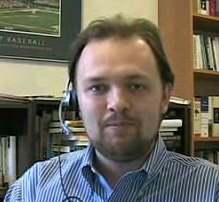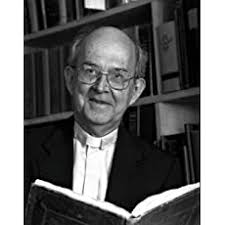 Since Anthony Kennedy tends to have the final say when our republic’s culture war debates reach the Supreme Court, and since it seems safe to assume where the author of Romer v. Evans and Lawrence v. Texas stands on the question of gay marriage, you can make a strong case that same-sex marriage opponents should actually be breathing a sigh of relief at today’s rulings on the issue.
Since Anthony Kennedy tends to have the final say when our republic’s culture war debates reach the Supreme Court, and since it seems safe to assume where the author of Romer v. Evans and Lawrence v. Texas stands on the question of gay marriage, you can make a strong case that same-sex marriage opponents should actually be breathing a sigh of relief at today’s rulings on the issue.For now, the right to define marriage is still reserved to the states, which means that the political battle can continue — albeit amid a flood of new lawsuits inspired by some of Kennedy’s arguments — in jurisdictions where the national trend toward support for gay wedlock hasn’t yet overwhelmed the traditional view. This obviously matters to the hardy band of activists who still hold out hope of reversing that trend. But it also matters to the many social conservatives who assume that gay marriage’s continued advance is more or less inevitable, but who hope to build in as many protections for religious liberty as possible along the way.
From this point of view, continuing on the current gradualist, federalist path to same-sex marriage gives conservatives time and space to pivot, ”psychologically as well as legally,” from the fight against gay marriage itself to “the struggle to preserve religious liberty and ensure that this revolution already made doesn’t enter a more radical phase,” The American Conservative’s Dan McCarthy suggests today. Ben Domenech, editor of The Transom, who’s written eloquently on the stakes for religious liberty in these debates, offered a similar take in April:
… Churches and other religious groups will have to resolve their willingness to engage legal protections and prepare to lose their tax status (as we’ve already seen in New Jersey) in anticipation of the inevitable lawsuits, and may wish to incorporate their schools and attendant organizations in a different manner so as to create legal firewalls. It is a libertarian pipe dream that such clashes with churches and religious institutions are in any way avoidable.
In a proper federalist system, states would work according to the laboratories of democracy model: they would see how this approach plays out in [states that have already legalized gay marriage] over the coming years, and alter their laws accordingly to protect religious organizations, businesses, mosques and churches, and prevent community clashes as best possible. State laws differ dramatically, and for a reason.
I mostly agree with these sentiments, but I do have one flicker of doubt about them. Unless something dramatic changes in the drift of public opinion, the future of religious liberty on these issues is going to depend in part on the magnanimity of gay marriage supporters — the extent to which they are content with political, legal and cultural victories that leave the traditional view of marriage as a minority perspective with some modest purchase in civil society, versus the extent to which they decide to use every possible lever to make traditionalism as radioactive in the America of 2025 as white supremacism or anti-Semitism are today. And I can imagine a scenario in which a more drawn-out and federalist march to “marriage equality in 50 states,” with a large number of (mostly southern) states hewing to the older definition for much longer than the five years that gay marriage advocates currently anticipate, ends up encouraging a more scorched-earth approach to this battle, with less tolerance for the shrinking population of holdouts, and a more punitive, “they’re getting what they deserve” attitude toward traditionalist religious bodies in particular. If religious conservatives are, in effect, negotiating the terms of their surrender, it’s at least possible that those negotiations would go better if they were conducted right now, in the wake of a Roe v. Wade-style Supreme Court ruling, rather than in a future where the bloc of Americans opposed to gay marriage has shrunk from the current 44 percent to 30 percent or 25 percent, and the incentives for liberals to be magnanimous in victory have shrunk apace as well.
Again, I don’t endorse this perspective, and as a foe of judicial aggrandizement I want to believe that McCarthy and Domenech are right about the advantages, both to conservatives and to the country, of settling the marriage debate in state capitols rather than in Washington D.C. But as social conservatives fall back on federalist arguments and state-by-state debates, the scenario sketched above is one they should at least keep in mind.


























